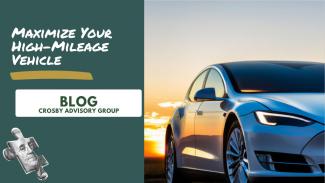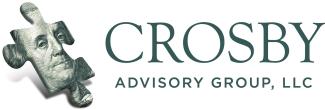
How to Maximize the Life of a High Mileage Car
Maximizing Your High-Mileage Vehicle
Good news, today’s vehicles are built better than ever! Gone are the days that crossing over the 100,000-mile mark means it’s time to budget for a new one. One of our trusted insurance partners, Erie Insurance, is sharing tips for managing a high-mileage car. With the right maintenance, it’s not uncommon for drivers to be able to keep their cars on the road longer.
If you’re in the market for a used car, I’m sure you quickly find yourself weighing the pros and cons of things like mileage, year, and features. When it comes to what things matter the most, there are arguments for all of them. While cars with low-mileage often have less wear and tear, a high-mileage car shows that it’s still running smoothly despite how much it’s been driven. It’s important to remember that there’s more to a vehicle than just its miles.
Having a trusted mechanic is key to the longevity of any vehicle. It’s also important to educate yourself on the routine wear and tear that cars experience over time. This will help your confidence levels as the odometer ticks above the 100,000 mark.
- Automatic transmission repairs are rare as most are simply replaced. This can be costly and often occurs after a car passes 100,000.
- Battery lifespan is around four years and is not tied to the number of miles that are put on a car.
- Brake pads should be checked during your routine maintenance checks, which will help catch any worn-out pads before damage is done to your rotors and bearings. You can often hear and/or feel when your brake pads need replaced.
- Tires wear out in a few ways – driving habits, road conditions, and the type of tire or car. A tip to check your tire tread is to insert a penny in the groove with Lincoln’s headfirst. If you can see any part of his head, it’s time for new tires.
- Fuel pump failure may occur if you often drive on a low tank, which can damage the pump. You should change your fuel filter every 50,000 miles.
- Water pump failure sometimes occurs between 60,000-90,000 miles. This will cause your vehicle to leak coolant and can lead to your engine overheating.
- Time belts give no warning before they break but can cause engine damage if they do. To avoid this, mechanics will suggest replacing the belt between 60,000-100,000 miles.
- Oil changes should occur on a routine basis but once a car reaches 75,000 miles, some mechanics will switch to high-mileage oil to help tighten up the engine.
5 Tips for Making a Car Last
If you’re buying or currently driving a high-mileage vehicle, here are 5 tips for making it last:
- Fix any problems immediately – they don’t go away and tend to get worse.
- Use high-quality parts – generally you get what you pay for when it comes to car parts.
- Perform your factory recommended maintenance including oil changes, tire rotation and pressure checks, maintaining fluids.
- Cleaning the exterior of your car not only keeps it looking nice but also helps prevent corrosion.
- Be careful when driving – avoiding rough turns and road conditions can add stress to your high-mileage vehicle.
Make Sure Your Insurance is Optimized
Car insurance plays a huge role in the overall cost of your vehicle. In a recent blog, we talked about ways to combat rising insurance rates – we always recommend the following:
- Placing your auto insurance with the same company as your home or renters’ insurance will typically result in a discount.
- Check for student discounts that are available if your young driver carries a B average or above and takes safe driving courses.
- Consider a higher deductible to lower your monthly rate.
- At renewal time, have your insurance agent compare prices to ensure you’re getting the best coverage for the most competitive cost.
With insurance prices on the rise, working with a partner like Crosby Advisory Group makes a big difference. We can help evaluate your current policy and help ensure you’re on the best path for your situation. Give us a call or feel free to email our insurance specialist, Julie (julie@nmdinsurance.com // phone: 419.496.0770).
Disclaimer: Crosby Advisory Group, LLC provides financial planning, business growth strategies and Insurance protection. CAG is a registered investment advisor. Investing involves risk including the potential loss of principal. Consider all risks before investing.

